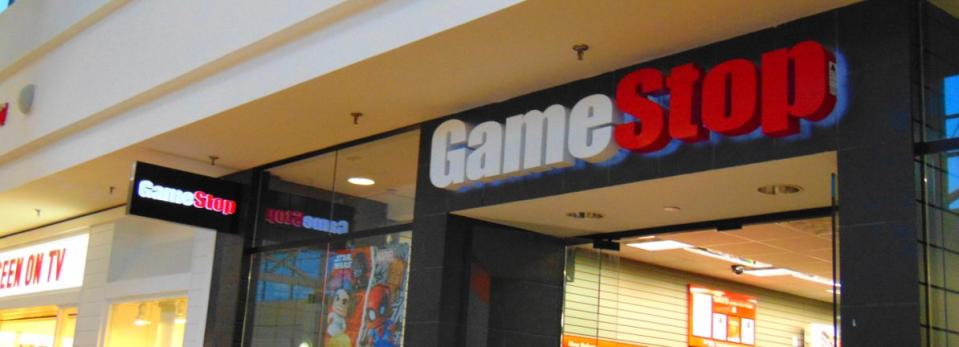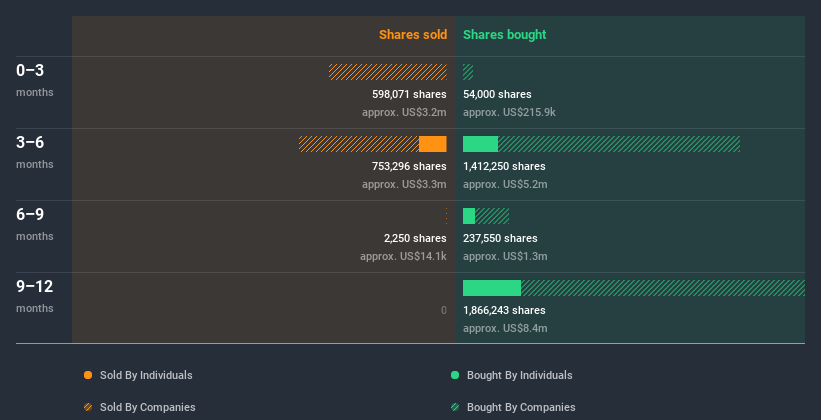How Much Are GameStop Corp. (NYSE:GME) Insiders Spending On Buying Shares?

We often see insiders buying up shares in companies that perform well over the long term. Unfortunately, there are also plenty of examples of share prices declining precipitously after insiders have sold shares. So shareholders might well want to know whether insiders have been buying or selling shares in GameStop Corp. (NYSE:GME).
What Is Insider Selling?
It is perfectly legal for company insiders, including board members, to buy and sell stock in a company. However, most countries require that the company discloses such transactions to the market.
Insider transactions are not the most important thing when it comes to long-term investing. But it is perfectly logical to keep tabs on what insiders are doing. For example, a Harvard University study found that 'insider purchases earn abnormal returns of more than 6% per year'.
View our latest analysis for GameStop
GameStop Insider Transactions Over The Last Year
In the last twelve months, the biggest single purchase by an insider was when insider John Broderick bought US$829k worth of shares at a price of US$5.05 per share. That means that an insider was happy to buy shares at above the current price of US$4.01. It's very possible they regret the purchase, but it's more likely they are bullish about the company. We always take careful note of the price insiders pay when purchasing shares. Generally speaking, it catches our eye when insiders have purchased shares at above current prices, as it suggests they believed the shares were worth buying, even at a higher price. We note that John Broderick was both the biggest buyer and the biggest seller.
Over the last year, we can see that insiders have bought 545.82k shares worth US$2.4m. But insiders sold 139.30k shares worth US$594k. In the last twelve months there was more buying than selling by GameStop insiders. The average buy price was around US$4.46. This is nice to see since it implies that insiders might see value around current prices. You can see a visual depiction of insider transactions (by companies and individuals) over the last 12 months, below. By clicking on the graph below, you can see the precise details of each insider transaction!
GameStop is not the only stock that insiders are buying. For those who like to find winning investments this free list of growing companies with recent insider purchasing, could be just the ticket.
Insider Ownership
For a common shareholder, it is worth checking how many shares are held by company insiders. I reckon it's a good sign if insiders own a significant number of shares in the company. GameStop insiders own about US$41m worth of shares. That equates to 16% of the company. This level of insider ownership is good but just short of being particularly stand-out. It certainly does suggest a reasonable degree of alignment.
So What Do The GameStop Insider Transactions Indicate?
It doesn't really mean much that no insider has traded GameStop shares in the last quarter. But insiders have shown more of an appetite for the stock, over the last year. Overall we don't see anything to make us think GameStop insiders are doubting the company, and they do own shares. So while it's helpful to know what insiders are doing in terms of buying or selling, it's also helpful to know the risks that a particular company is facing. To assist with this, we've discovered 2 warning signs that you should run your eye over to get a better picture of GameStop.
Of course, you might find a fantastic investment by looking elsewhere. So take a peek at this free list of interesting companies.
For the purposes of this article, insiders are those individuals who report their transactions to the relevant regulatory body. We currently account for open market transactions and private dispositions, but not derivative transactions.
This article by Simply Wall St is general in nature. It does not constitute a recommendation to buy or sell any stock, and does not take account of your objectives, or your financial situation. We aim to bring you long-term focused analysis driven by fundamental data. Note that our analysis may not factor in the latest price-sensitive company announcements or qualitative material. Simply Wall St has no position in any stocks mentioned.
Have feedback on this article? Concerned about the content? Get in touch with us directly. Alternatively, email editorial-team@simplywallst.com.

 Yahoo Finance
Yahoo Finance 
